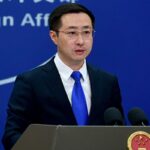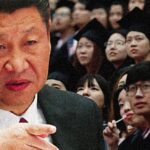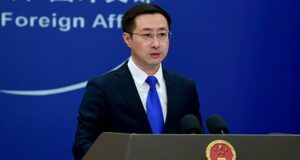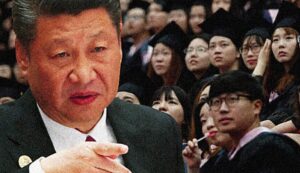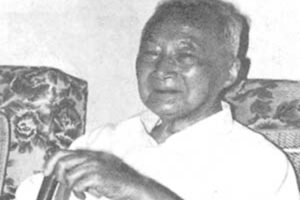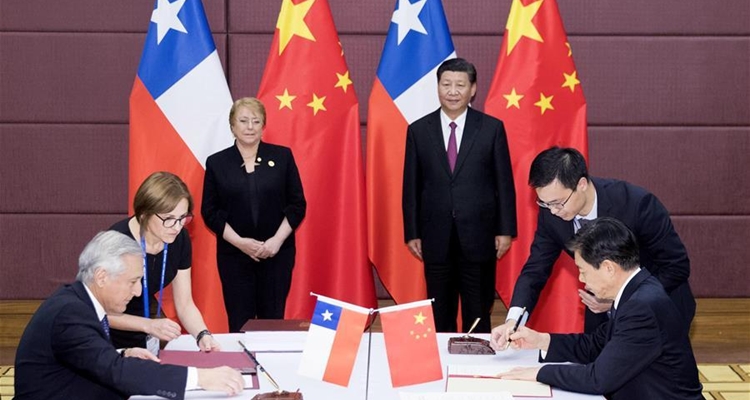
When China tries to do deals in Latin or South American countries to improve its ability to spy and to launch military attacks in the region, it doesn’t want the White House or the State Department to be pressing those countries to steer clear. And so “China Accuses US of Interfering in Its Latin America Ties” (Newsweek, April 18, 2025).
For example, the U.S should not interfere with China’s relationship with Chile, says the Chinese embassy in Chile. Leave Chile and China alone.
Derecho de elegir
According to the embassy’s “Declaración de la Embajada de China en Chile sobre las Injerencias Estadounidenses en la Cooperación Astronómica entre China y Chile,” which more or less means “Statement from the Chinese Embassy in Chile on United States Interference in Astronomical Cooperation between China and Chile,” U.S. officials have been challenging “soberanía chilena y su derecho autónomo de elegir socios de cooperación,” i.e., “Chilean sovereignty and its autonomous right to choose cooperation partners.”
The Chinese Communist Party, and therefore the Chinese government, and therefore Chinese diplomats regard any public criticisms of Chinese policy and conduct as “interference.” Any form of self-defense against China’s own interference is, in its view, “interference.” But if we let the concept cover so much territory, so that it may be used to refer even to severe diplomatic frowns, we must then take care to distinguish between good interference and bad interference. China’s interfering meddling is generally bad, and interfering to counteract that meddling is generally good.
It’s just an astronomy project, after all, stresses the Chinese embassy in Chile. What’s the big deal? The point is only to observe “transient astronomical phenomena, such as supernovae, gamma-ray bursts, electromagnetic counterparts of gravitational waves….”
That’s it and that’s all, China’s diplomats stress. Nothing to do with making inroads in Chile or South America in order to achieve somewhat different purposes. (Do missiles and satellites qualify as transient astronomical phenomena?) And if the Chinese Communist Party were not trying to dominate the globe, were not hostile to the United States, and did not always lie about its actions and intentions, and if the last hundred years of Chinese history had never happened, U.S. attempts to counter Chinese influence in either half of the globe might be inappropriate.
Recently, the Chilean government said it was reviewing a space project between a private Chilean university and a Chinese state space institute, at Cerro Ventarrones in the Atacama desert. Newsweek had reported exclusively on concerns in Chile and in the U.S. that it could be “dual-use,” or have military as well as civilian uses. The Chilean Ministry of Foreign Affairs did not immediately respond to a request for comment.
China blames the U.S. for the sudden switch….
A U.S. State Department spokesperson referred Newsweek to comments by Secretary of State Marco Rubio: “As stated by Secretary Rubio, we can’t live in a world in which China has more influence and more presence than we do in our region. The expanding role of the Chinese Communist Party in the Western Hemisphere threatens U.S. interests.”
CCP incursions everywhere on the globe directly or indirectly threaten U.S. interests. It might be more exact, then, to say that China’s aggressive activities in the Western Hemisphere may often threaten U.S. interests more directly and immediately than its aggression elsewhere.
Helping the Houthis
But even this distinction is pretty blurry.
American warships and commercial vessels have been under attack by Iran-backed Houthis in Yemen. The Houthis are also China-backed: “Chang Guang Satellite Technology Co. Ltd., a firm linked to the Chinese People’s Liberation Army, has continued to supply the Houthis with satellite intelligence despite multiple warnings from the Trump administration, U.S. officials told the Financial Times.”
Also see:
StoptheCCP.org: “China Is Stoking a New Cold War With the West”
Jewish Policy Center: “China’s Support of Hamas: Evidence and Actions”
